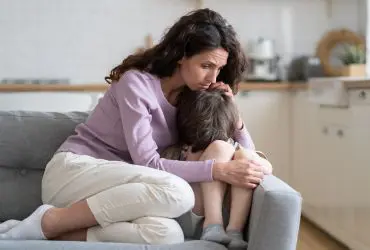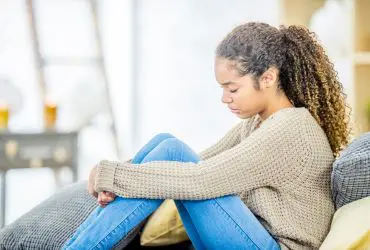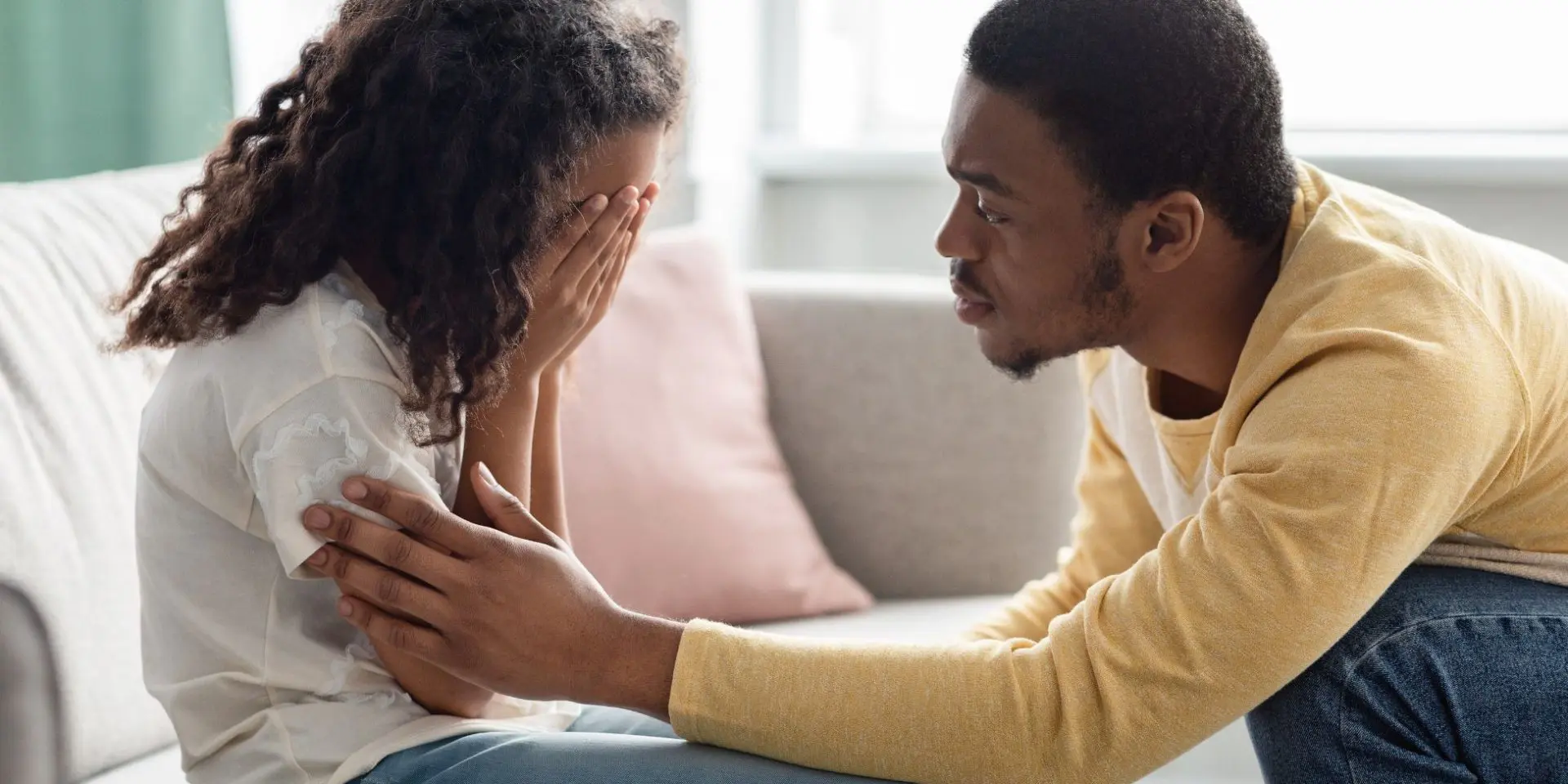To mark Suicide Awareness Month, members of the charity WAY Widowed and Young share their thoughts on coping with bereavement by suicide and how to look after themselves and their children.
Diane’s Story
“For me, the suddenness was also really difficult to deal with – one minute Graham was there and the next minute he wasn’t. In my case, there was no note or anything.
“I didn’t realise how poorly he was. I managed to get him to the doctor’s and they said it was anxiety and gave him anxiety tablets. But he bottled everything up. With being a farmer, he worked a lot and never took a holiday.
“We had a lot of support from the farming community when he died. They are very close knit. They made us food, gave the children presents and kept coming to help.
“The morning after Graham died, I was up at 5am getting the cows fed. In the end, we sold all the cows because I didn’t want to take the job on. I just wanted to focus on the children.”
The stigma around suicide is probably the hardest thing to deal with although things seem to be getting a bit easier now because people are more willing to talk about it.
“On the day Graham died, I think I told them he’d had a heart attack. But the headteacher from their school came round to see me and said, ‘Diane, I think you should tell them the truth because otherwise someone else will tell them. It’s better coming from you.’
“So I sat them down and told them the truth, which was very difficult because they lost their trust in me for a while. But they came round and if you hear them now, they have very black humour.
“I just took one step at a time. You’ve got to carry on. Some days, I still think ‘why?’ – but you just have to get on with it.”
Diane’s advice:
- Talk to other people about how you’re feeling. You don’t have to bottle things up.
- Find other people to talk to who have been through similar experiences.
- Take time for yourself, if you can.
“If you’re a member of WAY Widowed and Young, there’s a telephone support line offering bereavement counselling and advice.
“The main thing that everyone needs to know is that they are not alone. There is always someone there who understands… so please do reach out for help, if you need it.”
Kate’s story
“Being bereaved to suicide is torturous and there are so many conflicting emotions. One moment, I felt profound sadness for Matt, that he didn’t feel he could ask for help, and the next, I felt anger. How could you do this to me? How could you leave me and your children behind?
“I don’t think it’s a logical decision. I don’t think it can be because he was the kindest, most helpful and most lovely person who would do anything for anybody. Why would he make the choice to cause such devastation to so many people? Some people say it’s a selfish decision but I don’t think it’s selfish at all because the person who took their own life is not the person who loved you. It’s an illness. Matt and I talked all the time and I didn’t see that side of him. I loved him. He could have told me anything. I would have done anything for him.
“It’s challenging to explain the depth of emotions to those who haven’t experienced it. I’m not trying to say my grief is worse than others’. It’s not grief wars. My therapist would say it’s a whole different level of grief.
“One of the most difficult aspects is the persistent questioning of why he didn’t tell me. Did he not trust me? Did he not love me? I kept replaying our memories, wondering if he truly meant the things he said. But even if Matt was sitting here, he probably wouldn’t be able to give me answers. Obviously, a lot was going on in his head that he didn’t understand either.”
I questioned myself constantly in the first months, wondering why I didn’t see it, why he didn’t talk to me. He mentioned in his note that the last three years were the happiest in his life, but it wasn’t enough. I was haunted by thoughts of why I wasn’t enough for him. It took a lot of therapy and conversations with others to make me realise it wasn’t me. It wasn’t my fault.
“One of the other challenges of losing a partner to suicide is that it’s still seen as a stigma by some people. Some people just find it really difficult to know how to talk about it. They don’t know what to say.
“In the early days, I was desperate to talk to anybody who had been bereaved. I got in touch with the peer support network WAY Widowed and Young quite early because I knew a lady who had been widowed after their husband had a heart attack. I joined a Zoom call for new WAY members and met a lady whose husband had died the day after Matt. We have been friends ever since.
“Then gradually along the way, I’ve read people’s posts on the online groups and reached out to some other people. I’ve brought together a group of people and we support each through a WhatsApp group and monthly meet ups. Sometimes I dip into local events but I still find going out in the evenings quite difficult. I am much better during the day. It doesn’t matter to me that the people I’ve met through WAY haven’t been bereaved by suicide because, at the end of the day, we’ve all lost our person. And that’s the thing that has brought us together and I am so grateful for their friendship and support and so happy that they are in my life.
“Navigating grief involves discovering your safe people and places, not being too hard on yourself, and recognising that grief doesn’t follow a set timeline. Some days will be better than others, and that’s OK. Sometimes it’s literally enough to put one foot in front of another. You need to remember to look after yourself, even when your instant reaction is to protect and care for others, especially if you have children.”

Tips for support a grieving a child or stepchild after a suicide
A member from WAY shares their advice on how to support a child or young person, bereaved by suicide.
- Be honest with your children as much as appropriate. Don’t be tempted to shield them from too much because they probably know more than they are letting on and feeling like they are being included is really important. Their little brains will fill in any gaps so it’s often better to know the truth, no matter how awful, than for them to imagine what “might” have happened, which could be worse.
- Remind them often that they can talk to you about how they are feeling and that whatever they are feeling is okay. Also direct them to other people, relatives, friends, siblings, support services, school etc, so that they know if they don’t want to talk to you, they can talk to other people, and you won’t be annoyed at them for doing so.
- Really listen to them, don’t try to just placate them to try to make them feel better, they need to go through the grief to get to the other side of it same as you do. Acknowledge their feelings even if you don’t like hearing them or don’t necessarily feel the same way as them.
- Let them know they can share how they are feeling with you even if you are upset, or if they think it might upset you, and that even if it does upset you that’s okay too, crying together at a shared loss can help.
- They might well be worried you will leave them too, reassure them as much as you can that you have no intention of ever doing that. None of us can promise nothing bad will happen to us because that, sadly, just isn’t feasible, but letting them know you love them and are there for them and have no plans to leave, can help them feel more secure.
- Let them be angry, let them scream and yell and swear about the person who left them and you behind. Explain about mental health and how it impacted on the person that died. While it’s great reminding your child of the loving, funny, wonderful person they lost, it doesn’t take away the anger and pain that grief causes. It also doesn’t take away times when their important person may not have been particularly funny or wonderful, and it’s important to remember that too. That person was human like the rest of us, your child will remember that too, nobody is perfect.
- Discuss practical matters such as funerals with them, ask them what they might want to do, up to an appropriate point. If they don’t want to go to the funeral don’t force them, just explain gently the reasons you think they might regret it in the future, if you do think that, and let them make their choice. It’s just one day and there are many other things you can do together to celebrate the life or mourn the loss in the future.
- Laugh with them when you can. Many people feel guilty being happy after such a horrific loss, children and parents. Show them it’s okay to be happy as well.
Supporting yourself as a parent, carer or guardian after a suicide
A member from WAY also shares ways in which you can support yourself following a bereavement by suicide.
- Don’t put yourself under too much pressure. You can’t support anyone well if you aren’t looking after yourself. If you need a break and you have someone who can take the children for a few hours, let them, ask them if you need to.
- Don’t worry about being upset in front of the children. It’s normal and it’s actually really healthy for them to see you upset because it shows them, they can be upset too. Let them cuddle you if they want to make you feel better, it will probably make you both feel better for a little minute at least.
- Be kind to yourself. You are grieving so much, try not to do the “it’s not about me I just need to look after the children”. It’s about all of you, as a family, whatever that looks like. Lean on each other, adults and children alike, and just be there for each other. Everyone is different and everyone’s grief “journey” is individual to them, so just find what works for you and your children and go with that.

About WAY
The WAY Widowed and Young community offers a safe space to talk to other people (both with and without children) who understand how it feels to be widowed at a young age.
Click here to see the latest post on WAY from Winston’s Wish.
Find out how WAY can support you at www.widowedandyoung.org.uk


How to explain suicide to children and young people
Telling a child someone they love has died is difficult enough, but explaining that they died by suicide can be even harder. Often adults don’t want to talk about suicide, but we know from our experience that it is better to tell a child or young person the truth in a way that they will understand.
So, our expert team at Winston’s Wish offer guidance on how to explain a suicide to a child.

Feelings and thoughts following a death by suicide
When someone dies by suicide, children and adults may a experience a number of complicated and often conflicting emotions that can feel difficult to manage.
To help, we’ve put together some of the common feelings a child or young person might feel following a death by suicide.


